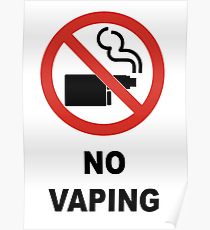The dangers of Juuling
December 17, 2019
Juuling, an increasing epidemic many parents, teachers, and administrators face each day. Juul Labs, the creators of the Juul, has recently been accused of killing and endangering teens with their products. This is not surprising, since teen vaping is an epidemic that affects 3.6 million underage users.
Juul is a type of electronic cigarette marketed towards smokers who want to cut back on cigarettes or use a “healthier” alternative. However, many teens are attracted to the product because it has become a trend. As a result, many teens have become addicted to the product.
The National Center for Health Research (NCHR), the e-liquid in Juul contains “5 percent nicotine by volume, which is more than twice the concentration of nicotine in similar devices like the Blu e-cig cartridge (2.4 percent nicotine.)” The high concentration of nicotine increases the risk of addiction.
In comparison to cigarettes, one Juul cartridge is equivalent to the amount of nicotine in a cigarette package.
The NCHR also explains, “The ‘Juul’ is especially popular among children and young adults due to its sleek and discreet design.” Their wide variety of breezy flavors make the product enticing to teens.
A 2017 study found that non-smoking adults were four times more likely to start smoking traditional cigarettes after only 18 months of vaping. This is because nicotine is a habit-forming chemical that can cause a development of intense cravings.
Recent studies conducted in government labs show that Juuls can impair brain and lung development in children. As of December 2019, there have been 42 deaths and more than 2,000 cases of serious lung related illnesses related to vaping. Teens may not be considering the short and long term consequences of using the product.
The chemical responsible for damaging the lungs is unknown. However, some scientists believe that vitamin E acetate, an additive in e-cigarette products, is to blame. Vitamin E acetate is most likely used as a thickening agent in the products.
After a lawsuit against Juul was filed in early 2019, Juul released an announcement stating that they would end the production of flavored pods. The company could lose millions due to their decision, but they hope it will decrease the use of their products in teens.
Juul’s chief executive officer affirmed, “don’t vape.” He warns non-smokers not to use Juul products to prevent becoming addicted to nicotine.
As the Juul epidemic worsens, the Center for Disease Control (CDC) promises to work with the Food and Drug Association (FDA), and other health departments towards a solution for the Juuling outbreak.

